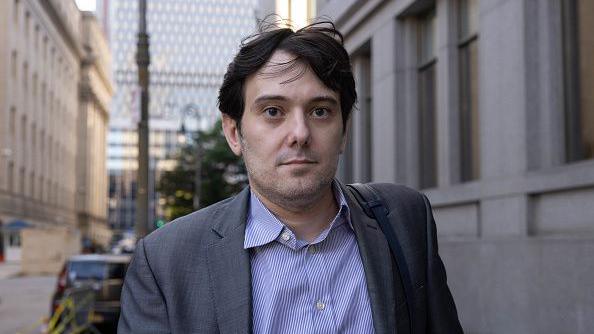He Made Millions In Prison: Martin Shkreli’s Post-Prison Pivot
After serving time for securities fraud, Martin Shkreli returned with a plan. Banned from the pharma industry, he launched Druglike — a blockchain-based drug discovery platform. Even in prison, he allegedly advised on crypto and finance. His story shows that in today’s world, strategic knowledge can trump reputation.
IMPOSSIBLEMOTIVATION
Thrivevision
5/12/20253 min read


Martin Shkreli, often dubbed the “Pharma Bro,” became one of the most notorious figures in corporate America for hiking the price of a life-saving drug overnight. But after being sentenced to seven years in prison for securities fraud in 2018, many believed his days of financial maneuvering were over. They were wrong.
Even behind bars, Shkreli found ways to stay financially active and relevant in the digital and crypto age. His time in prison did not halt his mind from grinding through markets, trends, and tech. Instead, it appeared to have intensified his obsession with leveraging complex systems to his advantage.
The Prison Hustle: Finance Behind Bars
While incarcerated at the low-security Federal Correctional Institution in Allenwood, Pennsylvania, Shkreli was not exactly idle. Reports emerged that he was still deeply involved in analyzing financial trends and particularly took interest in cryptocurrency markets — a rapidly evolving space that fits well with his affinity for disruption and speculative risk.
According to a Wall Street Journal report in 2022, Shkreli allegedly continued advising on crypto deals from behind bars, using smuggled-in devices or outside intermediaries. Inmates and external contacts suggested he offered informal financial advice and even played a role in managing a crypto portfolio. Though the full extent of his involvement remains murky, it's evident that prison walls did little to dull his strategic thinking.
Druglike: The Post-Prison Reinvention
After being released in May 2022, Shkreli wasted no time. Despite being permanently banned from the pharmaceutical industry by the courts, he launched a biotech platform called Druglike in July of the same year. The catch? It’s blockchain-based — a pharma-style startup that isn’t technically a pharma company.
Druglike claims to democratize drug discovery by providing decentralized computing resources for early-stage pharmaceutical research. The aim is to allow scientists around the world to contribute to molecule screening and development without the need for centralized labs. The project leverages blockchain tech to coordinate and reward contributors, almost gamifying the drug R&D process.
Shkreli’s legal team argues that Druglike doesn’t violate the terms of his industry ban because it doesn’t manufacture or sell drugs. But critics, regulators, and many in the pharma world view it as a loophole — another calculated workaround from a man who knows the limits of the system intimately.
Controversy as a Career Asset
Shkreli is no stranger to controversy. His 2015 price hike of Daraprim, a life-saving antiparasitic drug, from $13.50 to $750 per pill sparked international outrage. That, coupled with his smug attitude on social media and before Congress, made him the face of corporate greed. Yet paradoxically, this notoriety has also made him a cultural icon — albeit an infamous one.
His post-prison ventures tap into that same paradox. He knows how to attract attention, and in today's digital economy, attention is currency. By launching Druglike and continuing to comment on financial matters, Shkreli is staying relevant, branding himself as someone who plays the game better than most, even after being penalized.
Strategy Over Luck
Many people exit prison broken, stigmatized, and financially ruined. Shkreli emerged with a plan. His actions — however controversial — demonstrate a deeper truth about modern capitalism: mastery of systems can outweigh public image. Whether through crypto markets, blockchain-based biotech, or legal maneuvering, he’s continually found ways to turn knowledge into opportunity.
Yet, his story is not necessarily one of redemption. There is no clear remorse, no charitable pivot, no apparent effort to rebuild trust with the public. Instead, it’s a case study in resilience, strategic audacity, and the thin lines that define legality and ethics in the world of finance and tech.
Conclusion: A Symbol of the Times
Martin Shkreli remains a lightning rod of criticism, and rightly so. But he also represents a broader truth — that in today’s world, those who deeply understand systems can bend them, even after being penalized. He didn’t rely on luck to return to relevance. He relied on knowledge, timing, and strategy.
Whether one admires his cunning or detests his moral compass, Shkreli’s post-prison journey is undeniably compelling. It’s a story of how, in the modern age, you can lose everything — and still come back swinging.
Inspiration
Explore success stories and motivational journeys today.
Growth
Vision
© 2025. All rights reserved.
